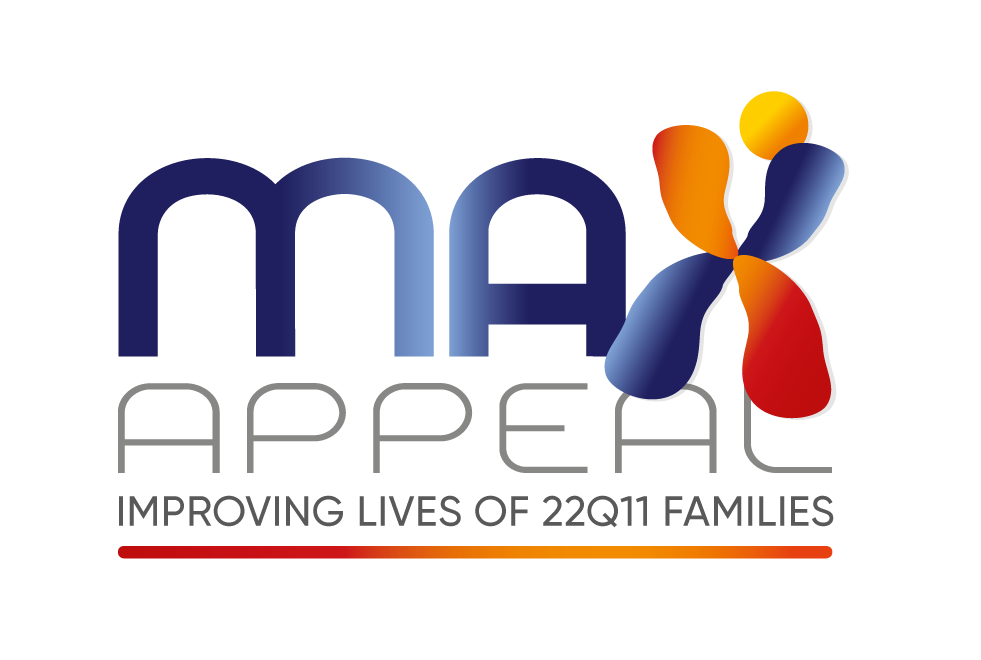Mental Health Disorders
Mental health and behavioural difficulties are more frequent in people with 22q11.2 deletion compared to the general population. Recognising early signs and seeking appropriate help is very important as interventions can significantly improve clinical outcomes.
Children can present with difficulties in attention, increased levels of activity and impulsive behaviour (attention deficit and hyperactivity disorder-ADHD) in about 35%. Problems with attention are more frequent than hyperactivity. ADHD parent training classes and medication can be effective for the majority of the cases.
Autism spectrum disorder (ASD) is present in about 12-45% of the children and young people. Below is a list with some of the difficulties that children and young people with 22q11.2 deletion can present with:
preferring to do things in a particular way or order.
may be happier when there is no change in the schedule or routine.
may be more sensitive to noises or textures of clothing or food.
may have specific interests or hobbies and know every detail about them.
May be generally shy when they meet new people and get anxious in social situations. However, once they get to know these people, they find it easier to engage in conversation.
Sometimes finding hard to know when it is their turn to talk in a conversation or be aware of the emotional tone of people’s voices.
may get along better with younger children or older people.
may find it difficult to play games with children that involve pretending.
prefer to have the items on the top of desks or tables, lined up in straight lines, or in patterns.
This is only a short list. If parents have any concerns, they can approach their GP for referral to a paediatrician or local Child and Adolescent Mental Health Services (CAMHS) for further assessment. Early diagnosis is beneficial to support the child’s social and educational needs.
Language and speech difficulties can also be common and are usually present in the first years of life.
These may be related with other physical problems, for example cleft palate.
Children may have limited vocabulary, not be able to structure a complex sentence.
They may have difficulty in understanding terms with many meanings, long sentences, idioms, humour or sarcasm.
Their speech may be excessively nasal- sounded or high pitch and may have poor articulation.
Seeking early help from a speech and language therapist is very important.
Learning difficulties can also be common
It would be very important for the child to have a cognitive assessment by an educational psychologist/clinical psychologist so strengths and weaknesses can be identified early, and proper help and support can be provided.
Anxiety disorder is present across all age groups in about 35%.
Most commonly, they may feel worried when they are in a new environment, meet someone new, have to speak in the class or in front of other people, use public transport or being with many people.
Once they get to know or become familiar with someone / environment, they may feel less worried and are able to open up.
Anxiety is also very common in children and young people with autism spectrum disorder, so it is very important that this is looked into.
If parents feel that their child’s anxiety is interfering with his/her everyday life, ask GP, local CAMHS and school for more input. Psychological input is usually very effective. Medication can also be used.
Difficulties with mood, more commonly depression, are more frequent in adolescent years, reaching 20% in adulthood.
Symptoms may include difficulties with their sleep, eating, concentration and energy levels. They may present more tearful, angry or moody or want to spend time on their own. Their self- esteem may become lower.
Cognitive and behavioural therapy adapted to their intellectual level can be very effective.
Psychosis reaches its peak in late adolescent years and studies have shown that ¼ people with 22q11.2 deletion may experience this. People can present with the following symptoms:
Hearing, seeing, feeling or smelling things that aren't there.
Strongly believing things that seem unreal to other people e.g. paranoid beliefs that there is a conspiracy against them.
feeling that they are being followed, or their life is in danger.
muddled thinking and difficulty concentrating.
feeling of being controlled by something outside themselves.
feeling like time speeds up or slows down.
Before the symptoms start, young people may experience increased anxiety and there may be worsening of their cognitive level. It is important that you talk to the GP if your child experiences these symptoms for referral to local CAMHS.
In a nutshell, the earlier the diagnosis is made, and treatment starts, the better the prognosis and quality of life for the child and the rest of the family.
For more information:
Management of psychiatric disorders in 22q11.2 deletion syndrome Dr Maria Rogdaki Clinical Lecturer and Specialty Registrar in Child and Adolescent Psychiatry IOPPN, King’s College London
- https://www.rcpsych.ac.uk/mental-health/parents-and-young-people
Give yourself plenty of time to read this leaflet and do get in touch with us if you have any queries or concerns. The purpose of this leaflet is to give you a broad picture of the areas more frequently seen in people with 22q11DS but this should not prevent you from seeking specialist advice if the things you are thinking about are not covered here. The information has been drawn, mostly from the Max Appeal Consensus Document of the Diagnosis and Management of 22q11DS.
